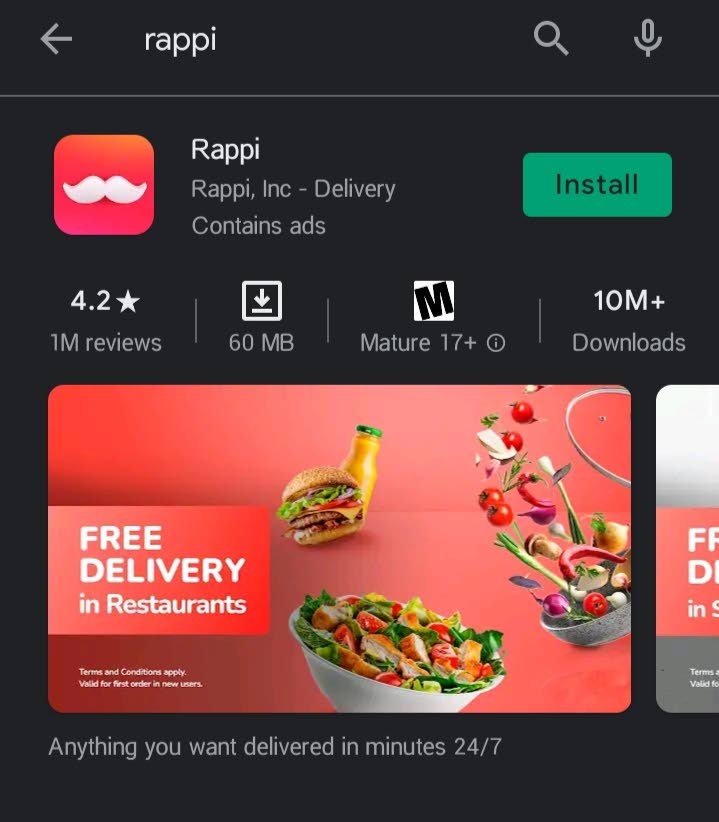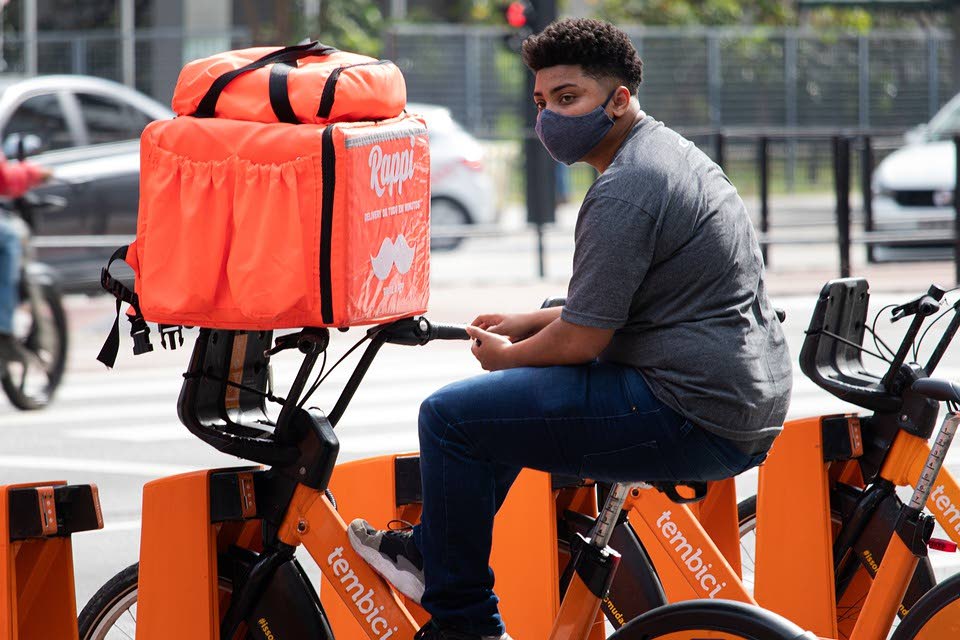Rappi the super app, next big tech innovation in Latin America

RAPPI – the name might be unfamiliar to some of us, but to the nine or more Latin American countries where it operates, the Colombian super app is helping to empower individuals, entrepreneurs and economies.
One of its co-founders, Juan Pablo Ortega, said the tech company wants to keep growing until it becomes the only app people need, and is going to keep expanding its offers to the rest of the Latin American and Caribbean (LAC) region. A super app is a platform that offers various services under one umbrella.
Ortega said Rappi is always looking for new countries and regions where it can offer its services. But right now, there isn't a specific country in the Caribbean that it's looking at entering.
He held a press conference during the recent virtual Collision Conference, which has been described as “North America’s fastest-growing tech conference.” It was held virtually from April 20-22 and more than 32,000 people attended from 140 countries.
Ortega, along with Simón Borrero, Sebastian Mejía, Felipe Villamarin and Guillermo Plaza Roche, founded Rappi in 2015.
Money2020.com said Ortega, “played an instrumental role in taking the company from being a four-person food-delivery start-up to becoming one of the region’s largest, multi-functional digital platforms with operations in nine countries and a valuation of US$3.5 billion.”
Explaining how Rappi became a super app, Ortega said, “We deliver everything from groceries, even cash. We started the company around five to six years ago. And the idea was, how can we use technology to move things faster, how can we use technology to make the delivery of convenience store items in 15 minutes? And that is how we started.”
Then, approximately two years ago, Rappi’s founders also saw an opportunity to improve people’s lives through financial services.
“We saw there was a deficiency in mostly transfers.”
Ortega said people were using Rappi to send cash to their friends and using Rappi cash, people sent physical cash to friends to pay for small or big things. That was how Rappi Pay started.

“We created a platform to let Rappi users send money between each other instantly and within a couple seconds,” he added.
That eventually grew into the company’s financial services arm, RappiBank, through which the company has started issuing credit and debit cards.
Usa.visa.com said on its website about the Rappi partnership: “Latin America is home to over 600 million people. Nearly half of them are unbanked. Getting a credit card or even a debit card is difficult. Which leaves many consumers unable to participate in the progress and advantages offered by the digital economy. The founders of Rappi believed that there was a way to change that and power a true digital transformation across Latin America.
“They created an app that not only delivered everything from food, to dog walking services, to on-demand manicurists, it delivered something just as important: financial inclusion to the entire ecosystem that used Rappi.”
Ortega said the credit card was launched in Mexico around two and a half months ago and so far it has had more than 650,000 applications.
“We have been able to approve more than 135,000 credit cards and we have more than 100,000 cards at the moment.”
Ortega said there is an appetite for better financial services in the region, and it is going to be expanded into Brazil, Chile, Peru, Colombia and all of the other countries in which Rappi operates.
“We think we are going to continue using technology, together with Visa, to really change how financial services work in the region.”
Undoubtedly, the covid19 pandemic has affected the world negatively. But it has affected Rappi positively, in that the company and its app saw increased demand.

“Rappi was seen as an application that helped make your life easier. But after many countries in the region were completely shut down, the only people that were allowed in the streets were couriers, and we became more of a necessity. We became the only way or one of the few ways where people were able to get their groceries...so it changed how users saw the app.
“It also helped us to get traction in financial services.”
He said there was a big barrier in users' minds over getting a credit card and/or debit card from the same company that delivered its groceries.
But after the pandemic arrived and people were afraid to go out to a physical branch of a bank, they were open to trying Rappi’s debit card and opening their secondary or primary bank accounts only through the app.
Rappi’s example in the LAC region has also spurred the growth of tech companies, Ortega said. He also believes Rappi’s example has changed the way investors perceive companies in the region.
Rappi faced a big barrier in getting venture capital to allow it to grow.
“We changed that way of thinking and we created a company that is showing international and US-based companies that there are unique currencies in the region, and companies can grow as fast as you see companies growing in China, Asia and even in the US.
“We also have a really good talent of developers. We are developing technological things…”
Rappi also thinks it will be able to use its technology to improve economies in the region.
“An amazing way we are doing this is through our couriers, for example.

“Our couriers are able to have flexible schedules. They are able to make two to three times more than they were making before Rappi started, and (that gives) them the flexibility to go to school or start a business.”
Rappi also announced a couple of months ago it was giving credit to all of its merchants to help them grow.
“So, using technology and everything that we have learnt, we are not only helping to grow a technology company, but we are helping empower the different individuals and the different companies to grow and help grow the economy.”
The company hopes to keep expanding its financial services and to have a million credit cards issued in 2021.
It also recently launched Rappi Travel, which will allow users to reserve flights to any destination through the app. Ortega said Rappi was looking at how travel is recovering and how people are willing and happy to get back to travel as well as e-commerce.
“We think that e-commerce and this idea of being able to get whatever you want in minutes and not in days is going to keep growing – and users are getting used to that.”

Comments
"Rappi the super app, next big tech innovation in Latin America"